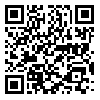Volume 37 -
jdm 2024, 37 - : 0-0 |
Back to browse issues page
Download citation:
BibTeX | RIS | EndNote | Medlars | ProCite | Reference Manager | RefWorks
Send citation to:



BibTeX | RIS | EndNote | Medlars | ProCite | Reference Manager | RefWorks
Send citation to:
shariatpanahi P, jamshidi P, sadeghipour Roudsari M, khoshnevisan M H, namdari M, arshadi fard B et al . Investigating the effect of peer friendship group on the oral health of 9 and 12 year-old students in Qazvin city in 1397- 1398. jdm 2024; 37 : 2
URL: http://jdm.tums.ac.ir/article-1-6220-en.html
URL: http://jdm.tums.ac.ir/article-1-6220-en.html
Peyman Shariatpanahi1 
 , Pouya Jamshidi2
, Pouya Jamshidi2 
 , Maryam Sadeghipour Roudsari *
, Maryam Sadeghipour Roudsari * 
 3, Mohammad hosein Khoshnevisan4
3, Mohammad hosein Khoshnevisan4 
 , Mahshid Namdari3
, Mahshid Namdari3 
 , Baharan Arshadi fard5
, Baharan Arshadi fard5 
 , Sarvin Soleimanpoor1
, Sarvin Soleimanpoor1 


 , Pouya Jamshidi2
, Pouya Jamshidi2 
 , Maryam Sadeghipour Roudsari *
, Maryam Sadeghipour Roudsari * 
 3, Mohammad hosein Khoshnevisan4
3, Mohammad hosein Khoshnevisan4 
 , Mahshid Namdari3
, Mahshid Namdari3 
 , Baharan Arshadi fard5
, Baharan Arshadi fard5 
 , Sarvin Soleimanpoor1
, Sarvin Soleimanpoor1 

1- Assistant Professor, Institute of Biochemistry and Biophysics, University of Tehran, Tehran, Iran
2- Dentist, School of Dentistry, Shahid Beheshti University of Medical Sciences, Tehran, Iran
3- Assistant Professor, Department of Community Oral Health, School of Dentistry, Shahid Beheshti University of Medical Sciences, Tehran, Iran
4- Professor, Department of Community Oral Health, School of Dentistry, Shahid Beheshti University of Medical Sciences, Tehran, Iran
5- Post-Graduate Student of Prosthodontics, School of Dentistry, Qazvin University of Medical Sciences, Iran
2- Dentist, School of Dentistry, Shahid Beheshti University of Medical Sciences, Tehran, Iran
3- Assistant Professor, Department of Community Oral Health, School of Dentistry, Shahid Beheshti University of Medical Sciences, Tehran, Iran
4- Professor, Department of Community Oral Health, School of Dentistry, Shahid Beheshti University of Medical Sciences, Tehran, Iran
5- Post-Graduate Student of Prosthodontics, School of Dentistry, Qazvin University of Medical Sciences, Iran
Abstract: (413 Views)
| Background and Aims: Nowadays, the requirement of any policy-making at the national and regional level is to know the level of knowledge of people about oral health and ways to prevent dental caries. This study examined the habits, actions and economic level of elementary school students in Qazvin city in 2017-2018. Also, the effects of peer group social network on behaviors related to oral health and obesity was investigated in order to find the way for interventions making it more effective in this social group. Materials and Methods: In this descriptive-analytical study, 145 students participated. They were in the 3nd and 6th grades of elementary school in the academic year of 2017-2018. The questionnaire used in this study had 20 questions and 4 main sections. The main parts of this questionnaire included demographic characteristics, behavior and habits related to oral health, oral health knowledge of students and families, and socio-economic status. Data were collected through clinical examinations and through valid questionnaires and evaluated using SPSS and Excel software. Results: According to the results of Pearson's correlation analysis, a significant correlation was observed between the health knowledge scores of individuals and their friends between both groups of casual and close friends (P<0.01). The correlation between the knowledge of individuals and close friends was significantly stronger (P<0.01). Also, there was a significant relationship between socio-economic status and behaviors related to oral health (P<0.05). There was also a significant positive relationship between the number of times close friends brushing their teeth in a social network (P<0.001). This connection was not observed in the friends’ network. Conclusion: This study determined that close friends can be effective in determining the oral hygiene behaviors of elementary school students. |
Article number: 2
Type of Study: Research |
Subject:
dental public health
Received: 2023/06/21 | Accepted: 2024/05/14 | Published: 2024/03/29
Received: 2023/06/21 | Accepted: 2024/05/14 | Published: 2024/03/29
Send email to the article author
| Rights and Permissions | |
 |
This work is licensed under a Creative Commons Attribution-NonCommercial 4.0 International License. |


